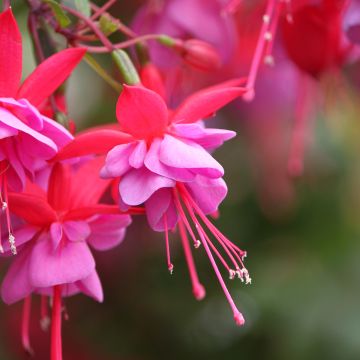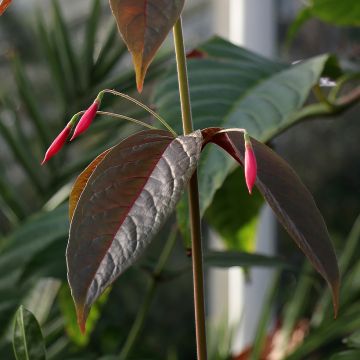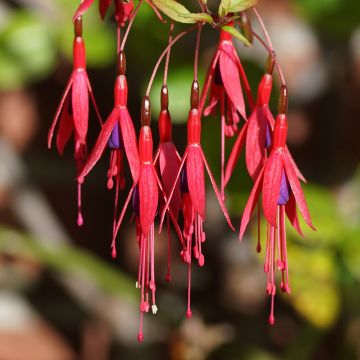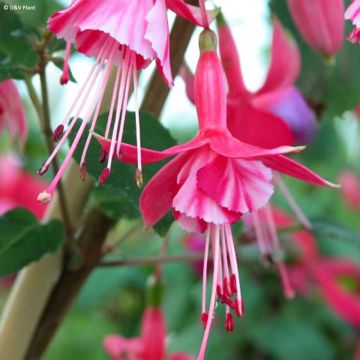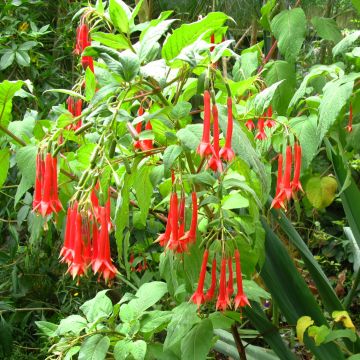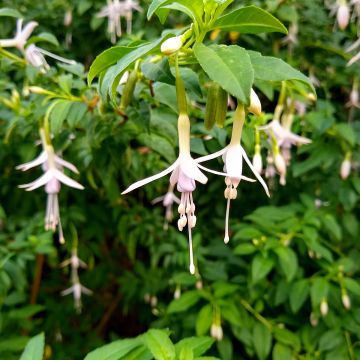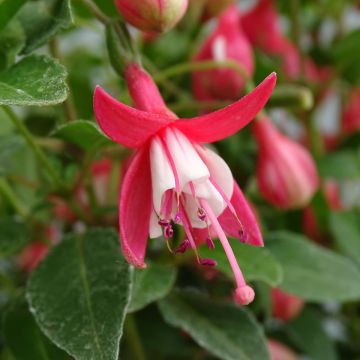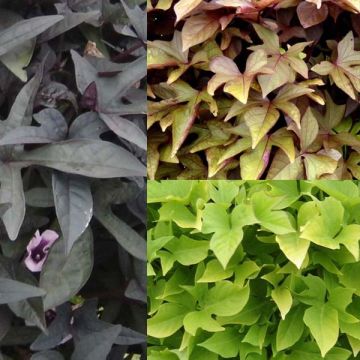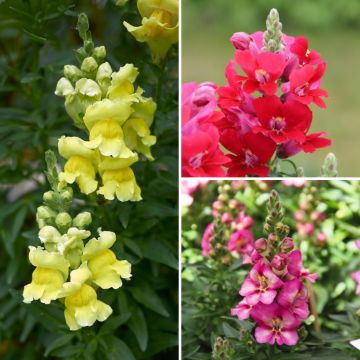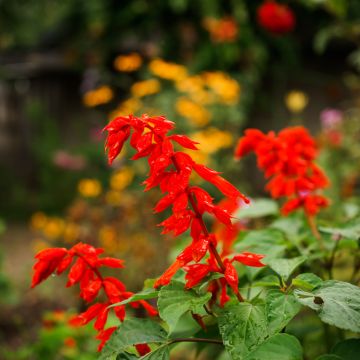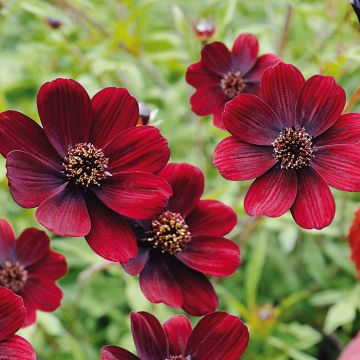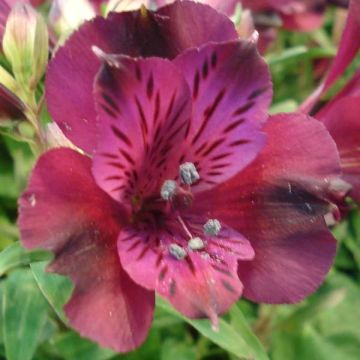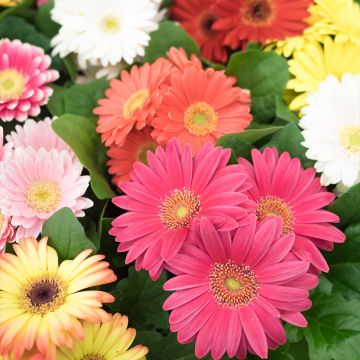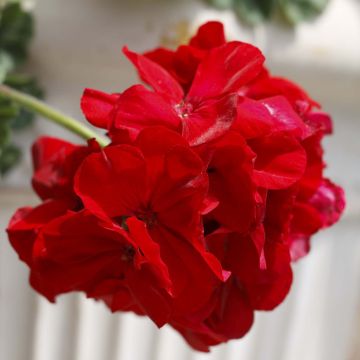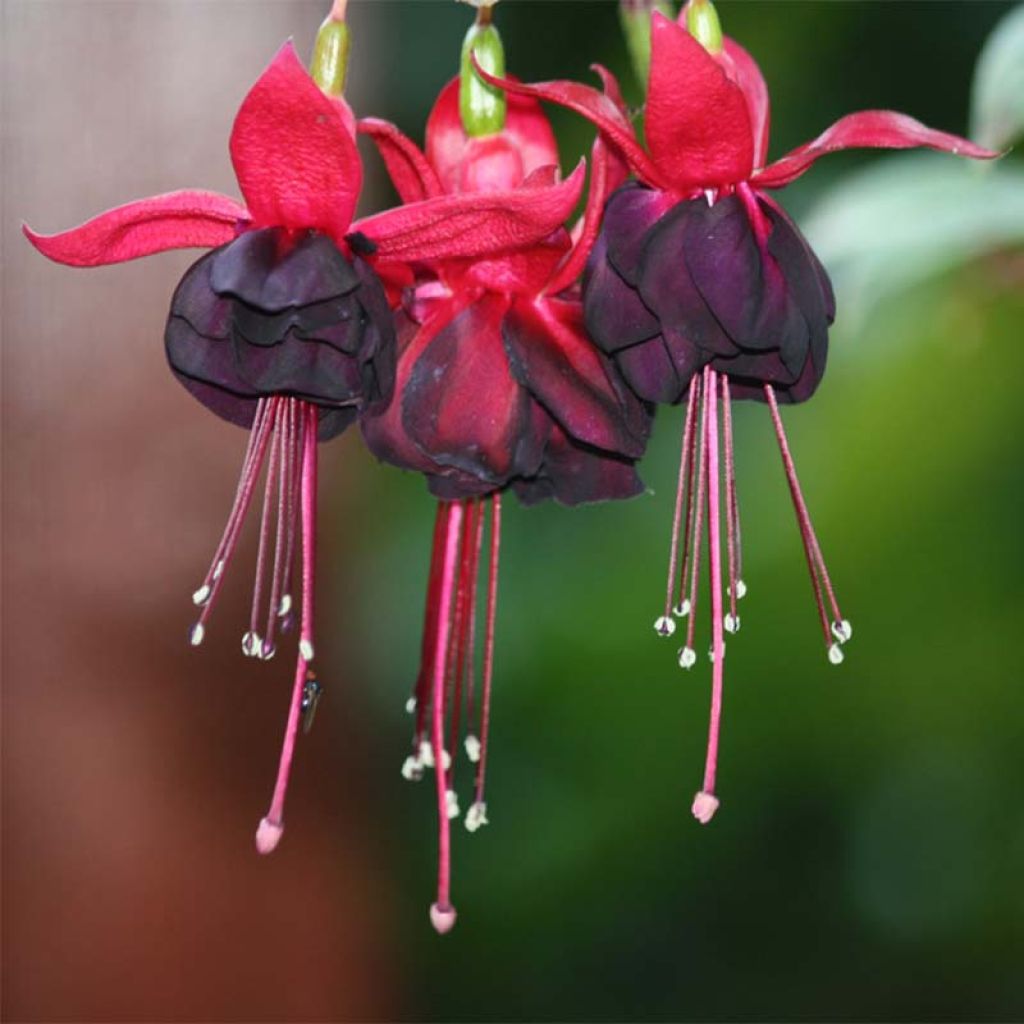

Fuchsia retombant Rohees Millenium
Trailing Fuchsia Rohees New Millenium
Fuchsia x hybrida Rohees New Millenium
Trailing Fuchsia
young plants received in good condition, promise lovely flowers.
Veronique, 04/05/2022
Special offer!
Receive a €20 voucher for any order over €90 (excluding delivery costs, credit notes, and plastic-free options)!
1- Add your favorite plants to your cart.
2- Once you have reached €90, confirm your order (you can even choose the delivery date!).
3- As soon as your order is shipped, you will receive an email containing your voucher code, valid for 3 months (90 days).
Your voucher is unique and can only be used once, for any order with a minimum value of €20, excluding delivery costs.
Can be combined with other current offers, non-divisible and non-refundable.
Home or relay delivery (depending on size and destination)
Schedule delivery date,
and select date in basket
This plant carries a 6 months recovery warranty
More information
We guarantee the quality of our plants for a full growing cycle, and will replace at our expense any plant that fails to recover under normal climatic and planting conditions.
Would this plant suit my garden?
Set up your Plantfit profile →
Description
The Fuchsia 'Rohees New Millenium' is a recent hybrid variety that falls in a spectacular cascade, adorned with large double petticoat-like flowers that are almost black, topped with dark pink petals. They bloom abundantly from late spring and continue until the end of summer, creating a magnificent display in hanging baskets. This plant is easy to grow in partial shade, in fertile, moist, and light soil.
Hybrid Fuchsias are countless, and most of them are derived from Fuchsia magellanica and Fuchsia fulgens, sometimes with the contribution of Fuchsia triphylla, which adds length to the flowers and is characterized by thin tubes and violet-colored reverse leaves. All these herbaceous to woody plants, more or less hardy and more or less erect or trailing, belong to the Onagraceae family. They are native to South America, the Caribbean, and Australia.
The 'Rohees New Millenium' Fuchsia quickly forms a dense bush with a spread and trailing habit, reaching a height of 50-60cm (19.7 - 23.6in) when in bloom and a width of 60cm (23.6in). Its flowering period extends from June to September-October. It stands out for its excellent floribundity and the unique colour of its flowers. Its large double flowers measuring 6 to 8cm (3.1in) in diameter appear in great numbers and for a very long period. They consist of a tube extended by 4 long and reflexed sepals of a reddish-pink color, and a corolla made up of multiple wider and shorter petals of an almost black violet. Long pink-violet stamens complete the colour harmony. The flexible stems, initially herbaceous, become somewhat woody over the season. They bear abundant foliage consisting of slender leaves arranged in opposite pairs, grouped in whorls or clusters of 3 or 5. They are entire, lanceolate, with dentate edges, and approximately 3 cm long. They have a fairly dark and glossy green colour. The foliage, deciduous, falls off in winter. The hardiness of this fuchsia does not exceed -3°C (26.6°F) in open ground.
Usually grown as an annual, this 'New Millenium' Fuchsia is a perennial that can be grown indoors, in a large pot that can be brought indoors during winter to protect it from frost, but it can also be planted in open ground for a season or even longer in very mild climates. Fuchsias pair well with the foliage of ferns, Rodgersias, orange Heucheras, or light green hostas. In a large flower pot, they can be accompanied, for example, by ivy, Euphorbia 'Diamond Frost', lobelias, or Bacopas with very delicate flowers. In the garden, fuchsias are remarkable alongside hydrangeas or annual Impatiens balfourii. Large double-flowered varieties will be enhanced by upright varieties such as 'Price Noir' or 'Winston Churchill'.
Discovered in Santo Domingo in the 17th century and acclimated in Europe, it was named Fuchsia (not Fuschia) in honour of a German botanist named Fuchs. Native to South America, botanical Fuchsias have gradually multiplied. There are now estimated to be tens of thousands of hybrids!
Note: Please be aware that our young plants in mini-plugs are professional products intended for experienced gardeners: upon receipt, transplant and store them under cover (conservatory, greenhouse, cold frame...) at a temperature above 14°C (57.2°F) for a few weeks before being placed outdoors once the risk of frost has definitively receded.
Report an error about the product description
Trailing Fuchsia Rohees New Millenium in pictures
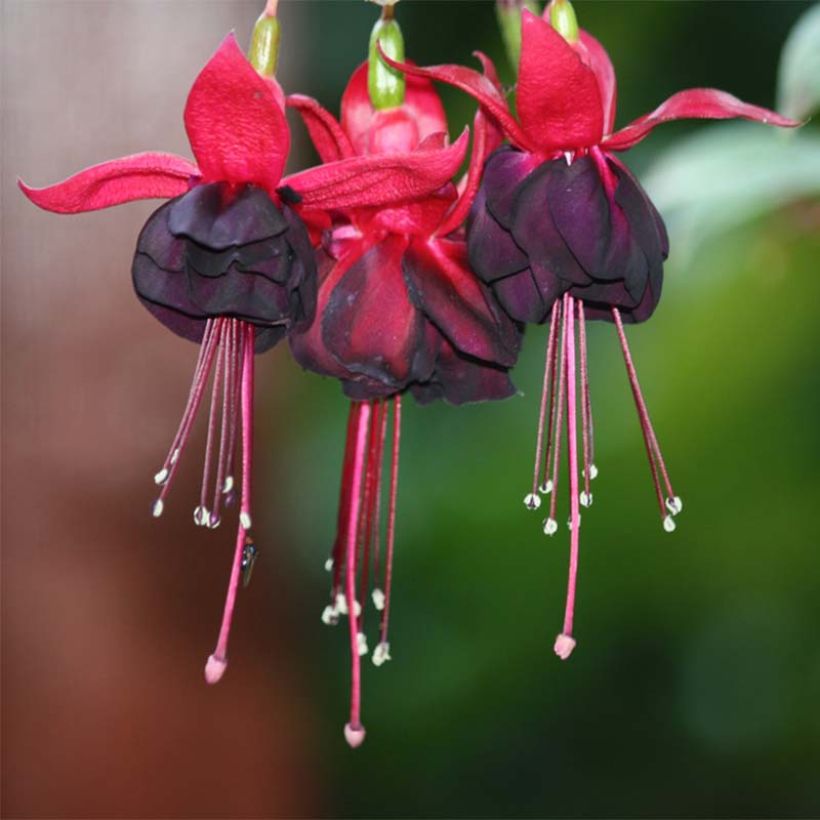

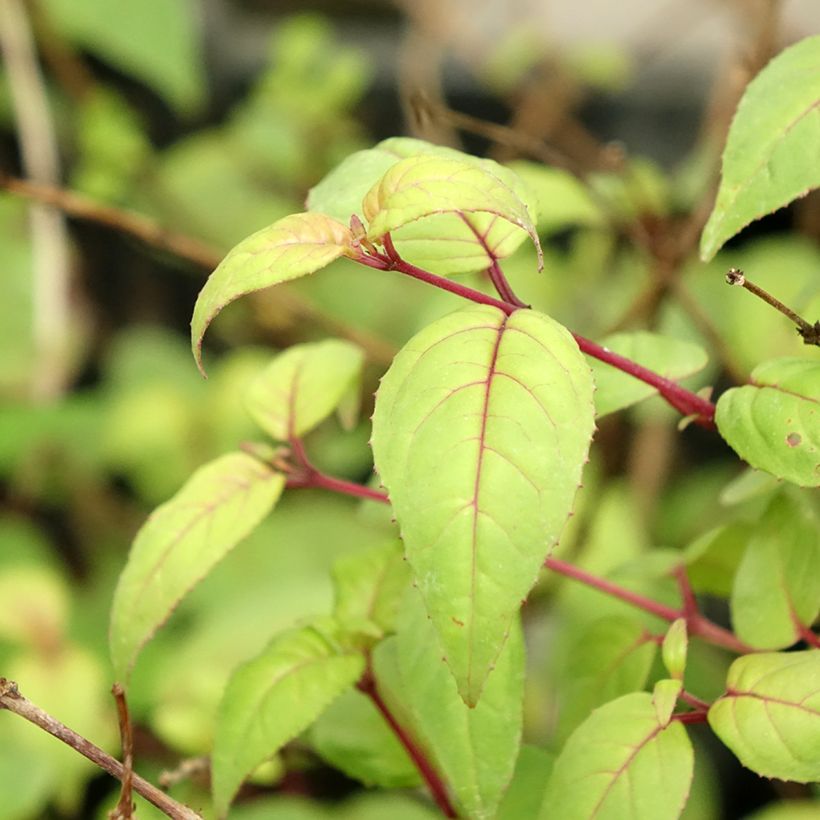

Flowering
Foliage
Plant habit
Botanical data
Fuchsia
x hybrida
Rohees New Millenium
Onagraceae
Trailing Fuchsia
Cultivar or hybrid
Other Fuchsia
View all →Planting and care
Plant your hybrid fuchsias in a rich, fresh and well-drained substrate, preferably in partial shade. Avoid limestone soils. Fuchsias need plenty of light to flower well but they are sensitive to scorching sun in summer. Water regularly as they are sensitive to drought, but without excess. When grown in pots, make sure not to leave water in the saucer, as this would cause the roots to rot and the leaves to fall off. Feed with a liquid fuchsia fertilizer every 15 days during the growth period. Regularly remove faded flowers and dry leaves. Young shoots can be pinched to encourage the plant to branch out and produce more flowers, which are always carried by the current year's shoots. Prune in autumn after flowering. Fuchsias can also be grown indoors, where they are perennial and evergreen.
Planting period
Intended location
Care
-
, onOrder confirmed
Reply from on Promesse de fleurs
Similar products
Haven't found what you were looking for?
Hardiness is the lowest winter temperature a plant can endure without suffering serious damage or even dying. However, hardiness is affected by location (a sheltered area, such as a patio), protection (winter cover) and soil type (hardiness is improved by well-drained soil).

Photo Sharing Terms & Conditions
In order to encourage gardeners to interact and share their experiences, Promesse de fleurs offers various media enabling content to be uploaded onto its Site - in particular via the ‘Photo sharing’ module.
The User agrees to refrain from:
- Posting any content that is illegal, prejudicial, insulting, racist, inciteful to hatred, revisionist, contrary to public decency, that infringes on privacy or on the privacy rights of third parties, in particular the publicity rights of persons and goods, intellectual property rights, or the right to privacy.
- Submitting content on behalf of a third party;
- Impersonate the identity of a third party and/or publish any personal information about a third party;
In general, the User undertakes to refrain from any unethical behaviour.
All Content (in particular text, comments, files, images, photos, videos, creative works, etc.), which may be subject to property or intellectual property rights, image or other private rights, shall remain the property of the User, subject to the limited rights granted by the terms of the licence granted by Promesse de fleurs as stated below. Users are at liberty to publish or not to publish such Content on the Site, notably via the ‘Photo Sharing’ facility, and accept that this Content shall be made public and freely accessible, notably on the Internet.
Users further acknowledge, undertake to have ,and guarantee that they hold all necessary rights and permissions to publish such material on the Site, in particular with regard to the legislation in force pertaining to any privacy, property, intellectual property, image, or contractual rights, or rights of any other nature. By publishing such Content on the Site, Users acknowledge accepting full liability as publishers of the Content within the meaning of the law, and grant Promesse de fleurs, free of charge, an inclusive, worldwide licence for the said Content for the entire duration of its publication, including all reproduction, representation, up/downloading, displaying, performing, transmission, and storage rights.
Users also grant permission for their name to be linked to the Content and accept that this link may not always be made available.
By engaging in posting material, Users consent to their Content becoming automatically accessible on the Internet, in particular on other sites and/or blogs and/or web pages of the Promesse de fleurs site, including in particular social pages and the Promesse de fleurs catalogue.
Users may secure the removal of entrusted content free of charge by issuing a simple request via our contact form.
The flowering period indicated on our website applies to countries and regions located in USDA zone 8 (France, the United Kingdom, Ireland, the Netherlands, etc.)
It will vary according to where you live:
- In zones 9 to 10 (Italy, Spain, Greece, etc.), flowering will occur about 2 to 4 weeks earlier.
- In zones 6 to 7 (Germany, Poland, Slovenia, and lower mountainous regions), flowering will be delayed by 2 to 3 weeks.
- In zone 5 (Central Europe, Scandinavia), blooming will be delayed by 3 to 5 weeks.
In temperate climates, pruning of spring-flowering shrubs (forsythia, spireas, etc.) should be done just after flowering.
Pruning of summer-flowering shrubs (Indian Lilac, Perovskia, etc.) can be done in winter or spring.
In cold regions as well as with frost-sensitive plants, avoid pruning too early when severe frosts may still occur.
The planting period indicated on our website applies to countries and regions located in USDA zone 8 (France, United Kingdom, Ireland, Netherlands).
It will vary according to where you live:
- In Mediterranean zones (Marseille, Madrid, Milan, etc.), autumn and winter are the best planting periods.
- In continental zones (Strasbourg, Munich, Vienna, etc.), delay planting by 2 to 3 weeks in spring and bring it forward by 2 to 4 weeks in autumn.
- In mountainous regions (the Alps, Pyrenees, Carpathians, etc.), it is best to plant in late spring (May-June) or late summer (August-September).
The harvesting period indicated on our website applies to countries and regions in USDA zone 8 (France, England, Ireland, the Netherlands).
In colder areas (Scandinavia, Poland, Austria...) fruit and vegetable harvests are likely to be delayed by 3-4 weeks.
In warmer areas (Italy, Spain, Greece, etc.), harvesting will probably take place earlier, depending on weather conditions.
The sowing periods indicated on our website apply to countries and regions within USDA Zone 8 (France, UK, Ireland, Netherlands).
In colder areas (Scandinavia, Poland, Austria...), delay any outdoor sowing by 3-4 weeks, or sow under glass.
In warmer climes (Italy, Spain, Greece, etc.), bring outdoor sowing forward by a few weeks.






























